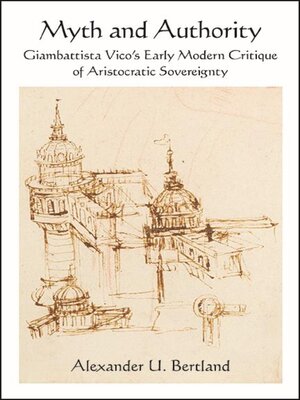Myth and Authority
ebook ∣ Giambattista Vico's Early Modern Critique of Aristocratic Sovereignty · SUNY series in Contemporary Italian Philosophy
By Alexander U. Bertland

Sign up to save your library
With an OverDrive account, you can save your favorite libraries for at-a-glance information about availability. Find out more about OverDrive accounts.
Find this title in Libby, the library reading app by OverDrive.



Search for a digital library with this title
Title found at these libraries:
| Loading... |
Living in a province dominated by powerful oligarchs, Giambattista Vico (1668–1744) concluded that political philosophy should work to undermine aristocratic authority and prevent political devolution into feudalism. Rejecting the possibility that the free market could successfully instill civil behavior, he advocated for a strong central judicial system to work closely with citizens to promote stability and justice. This study puts Vico in conversation with other Enlightenment thinkers such as Locke, Rousseau, and Mandeville to show how his alternative warrants serious consideration. In contrast to scholars who read Vico's New Science as a defense of the imagination, this study casts his account of poetic wisdom politically as an epistemological critique of the aristocratic mentality. Myth and Authority argues that Vico's depiction of pagan religion is a refined attempt to explain how oligarchy maintains its stranglehold on power. While Western civilization did not follow the path Vico suggested, it may now be more relevant as concerns grow about the increasing influence of the wealthy on civil institutions.






